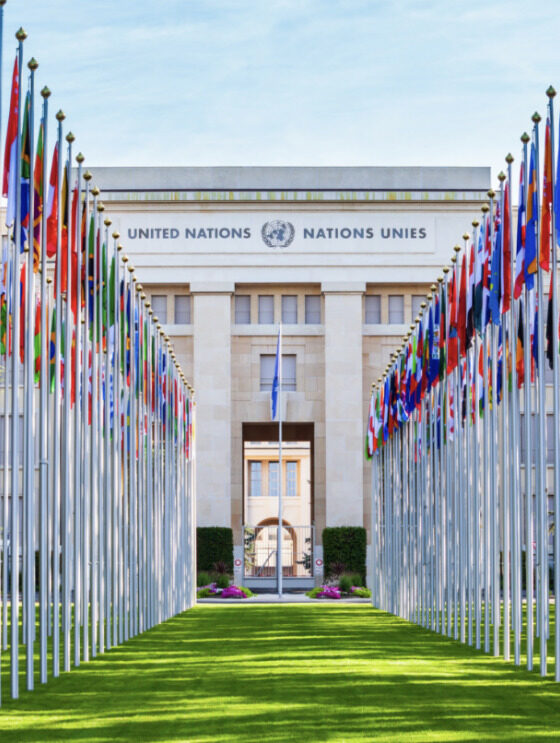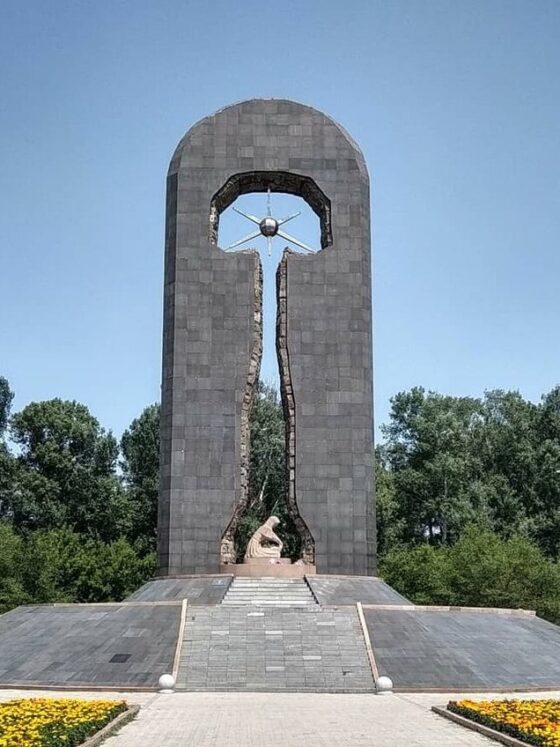By Erica Marat
On October 15, voters in Kyrgyzstan will select a new president, ending Almazbek Atambayev’s single six-year term. The main battle is between Sooronbay Jeenbekov of the Social Democratic Party (SDPK) and Omurbek Babanov, leader of Respublika. Jeenbekov is relying on the SDPK’s influence in the public sector, while Babanov’s personal campaign spending far outpaces that of the other candidates. Campaign posters with Babanov’s portraits blanket every corner of the country, while teachers and local government officials are forced to promote Jeenbekov.
Other candidates with national-level recognition cluster around the leading duo. Babanov has aligned with Bakyt Torobayev, the leader of Onuguu-Progress, while Jeenbekov scored the support of Ata-Jurt’s Kamchybek Tashiev. Another candidate, former prime minister Temir Sariev, has yet to align himself with a stronger candidate. Though these alliances are unlikely to last beyond the elections (Babanov himself was once in alliance with Tashiev), they will, however, serve to ensure less popular candidates key positions in the government.
Since the regime change of 2010, voters in Kyrgyzstan are accustomed to frequent and somewhat fair elections. In the weeks leading up to the elections, politics roars to life: candidates make new promises on economic prosperity, sponsor festivities around the country, and participate in televised debates with their competitors. Incremental changes in campaign style are visible over time, leading to today’s somewhat theatrical approach. Candidates try to stand out by showcasing their patriotism and creativity. In the mold of presidential campaigns in the United States, Torobayev began using a teleprompter. Babanov, meanwhile, met with Nursultan Nazarbayev, president of Kazakhstan, in order to demonstrate that regional leaders support his campaign.
The upcoming elections are likely to qualify as fairly free and competitive by international standards. The followers of both Babanov and Jeenbekov will be on the lookout for falsifications by their opponents. The election will likely lead to another peaceful transfer of presidential power in the region. Should there be convincing evidence of victory by either of the candidates, post-election demonstrations are unlikely.
The political dynamism of its electoral process sets Kyrgyzstan apart from neighboring Central Asian states, where power transfers usually occur between small circles of ruling elites.
Yet unlike the 2010 parliamentary elections and 2011 presidential elections that tested the country’s ability to engage in democratic procedures, this year’s vote will not mark a significant step toward strong governance procedures. Instead, it will represent further consolidation of patronal structures in the country.
Kyrgyzstan falls into some of the common traps of uneven democratic development observed in other post-authoritarian countries. Only candidates whose parties are represented in the parliament stand a chance of gaining national-level recognition within the allotted 35-day campaigning period. But political parties require enormous resources to gain access to the parliament. As such, parliamentary elections became harvesting seasons for political parties: they collect new candidates who are able to make large payments in exchange for a government position or a place in the party list. The greater the contribution, the higher the place in the list and the more chance of gaining a parliamentary seat. Some political parties are known to demand hundreds of thousands of dollars for the most desired spots.
Political parties have also become the main platforms for individual political careers. In order to serve in the government, an individual needs to be affiliated with a major party. In recent years, many younger politicians were able to enter political life by joining one of the top five political parties: SDPK, Respublika, Onuguu-Progress, Ata-Jurt, and Ata-Meken. At the same time, political parties function around their founders, not political ideologies. Thus, anyone joining a party must also become loyal to its leader rather than its ideas. Such patronal relations stump intra-party debates.
The political parties of both Jeenbekov and Babanov are represented in the parliament. Thus, it is neither the candidates’ ideological belonging nor their political programs that give them the electoral lead. Rather, their chances in the elections are determined by the number of people they have been able to place in the parliament, people who owe them loyalty by virtue of belonging to the party. Both SDPK and Respublika likewise survived under autocratic leaderships in the 2000s, often by avoiding direct challenges to the status quo.
Despite their exceptional backgrounds in creating new opportunities for equality, education, and security for diverse groups, independent candidates such as Rita Karasartova and Kamila Sharshekeeva were unable to overcome the Central Electoral Commission’s stringent registration standards. Informally, their lack of a political party affiliation could be a reason for CEC to deny them registration. Both candidates offer groundbreaking ideas on good governance and social equality, but are easily dismissed because they lack parties with parliamentary representation.
Kyrgyzstan’s experiments with competitive elections demonstrate that while power may be transferred peacefully, competition is confined to candidates who are able to function in autocratic systems. Both SDPK and Respublika have supported autocratic legislation since 2010. Atambayev, with the backing of SDPK, has shown disinterest in an independent judicial branch, while the parliament is willing to adopt autocratic legislation supporting the president without much debate. Vocal opponents of Atambayev have been jailed on allegations of corruption. In 2016, the constitution was amended without broad public debate in order to reflect the Atambayev administration’s vision. Autocracy and patrimonialism between elections repeatedly confirm that competitive and frequent voting is not a strong predictor of good governance and democracy.
Erica Marat is Associate Professor, College of International Security Affairs, National Defense University













